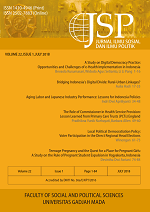Good Corporate Governance and Working Conditions at Petrol Stations: A Critical Political Economy Perspective
Ardiyansyah
Abstract
This study examines the claim that the benefits of good corporate governance (GCG) extend to all stakeholders, with a specific focus on the advantages for workers during operational processes. Conceptually, GCG connects all stakeholders by following its principles, without addressing power imbalances that arise from stakeholder class differences. This research highlights an underexplored aspect of GCG literature: power asymmetries among internal stakeholders, specifically the relationship between business owners and their workers. This study employs a multiple case study approach, drawing on in-depth interviews with 30 informants and document analysis of station records, regulatory frameworks, and prior studies, focusing on Pertamina petrol stations managed by Pertamina Patra Niaga and Pertamina Retail, which received “good” and “excellent” GCG ratings in 2023. The analysis of four petrol stations—operated either directly by Pertamina Retail or by private partners under Pertamina Patra Niaga—reveals that exploitative labour arrangements and substandard working conditions persist despite the formal implementation of GCG principles. These findings underscore that, in the absence of measures to address structural power asymmetries among stakeholders, the benefits of GCG are disproportionately captured by dominant actors, particularly capital owners within the corporate hierarchy.
Keywords
decent work, labour process; working class























